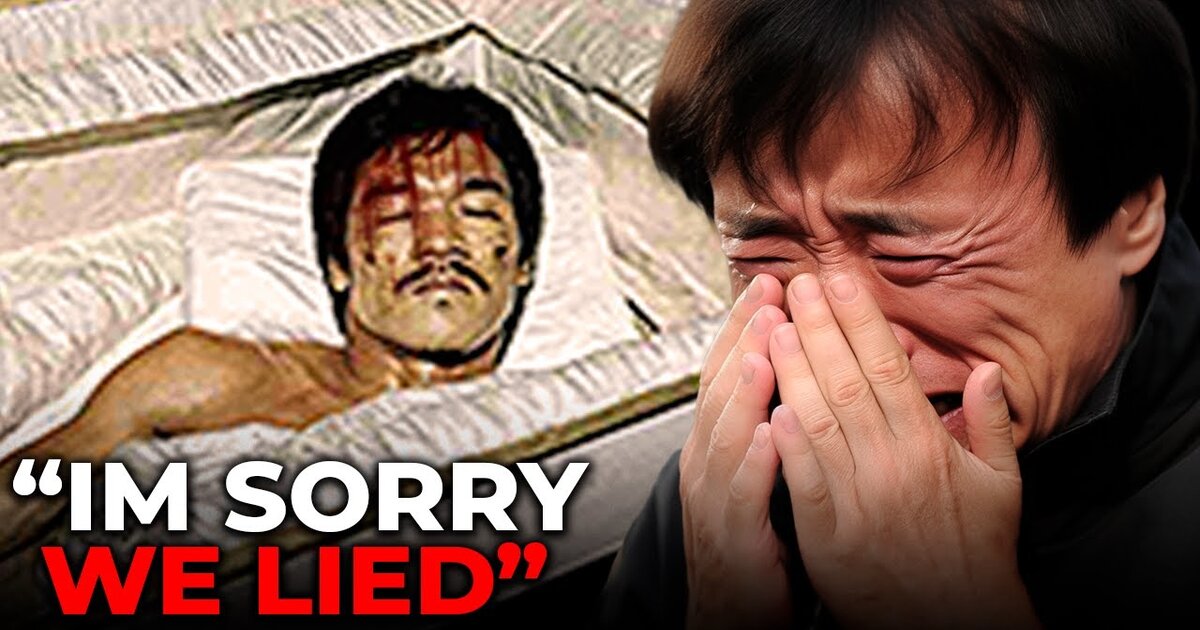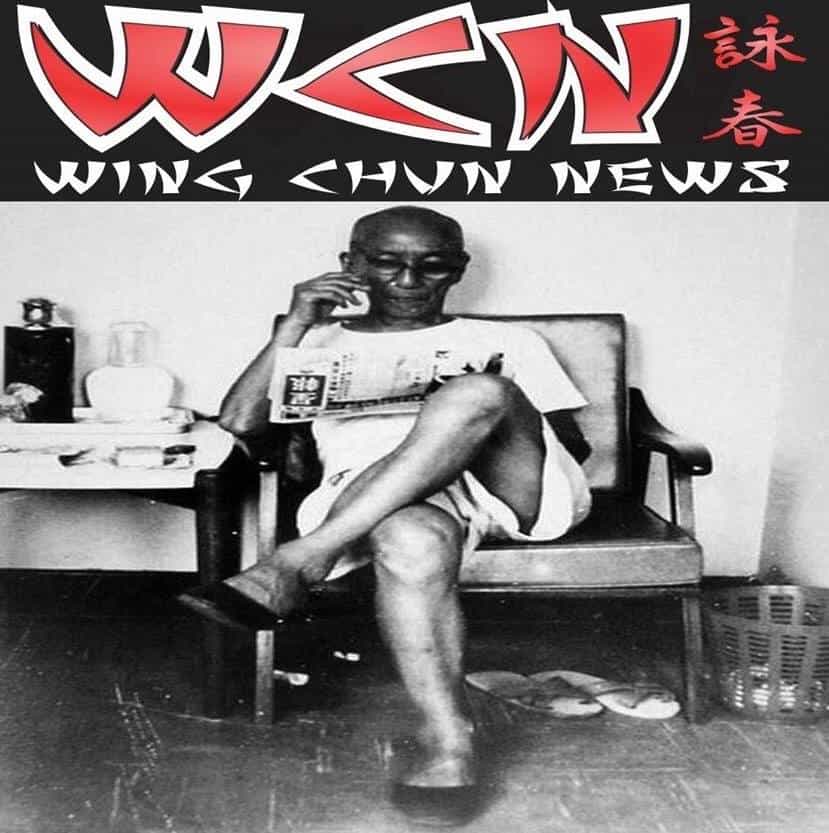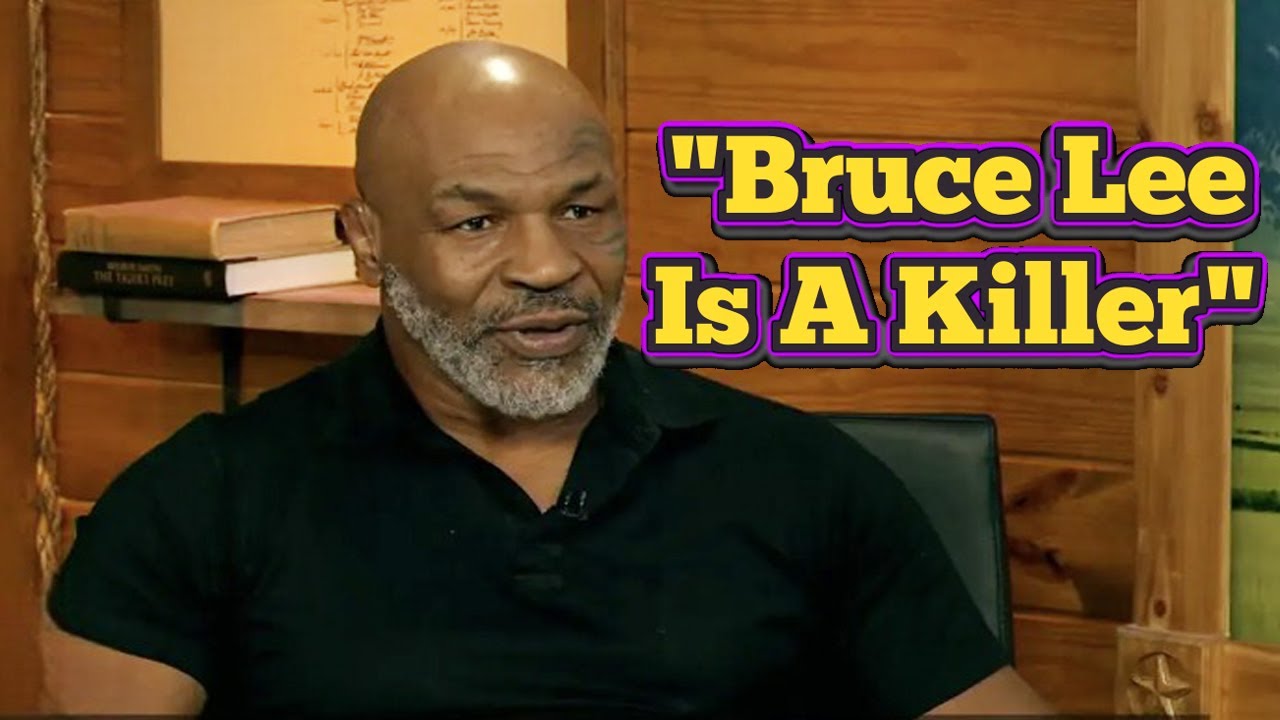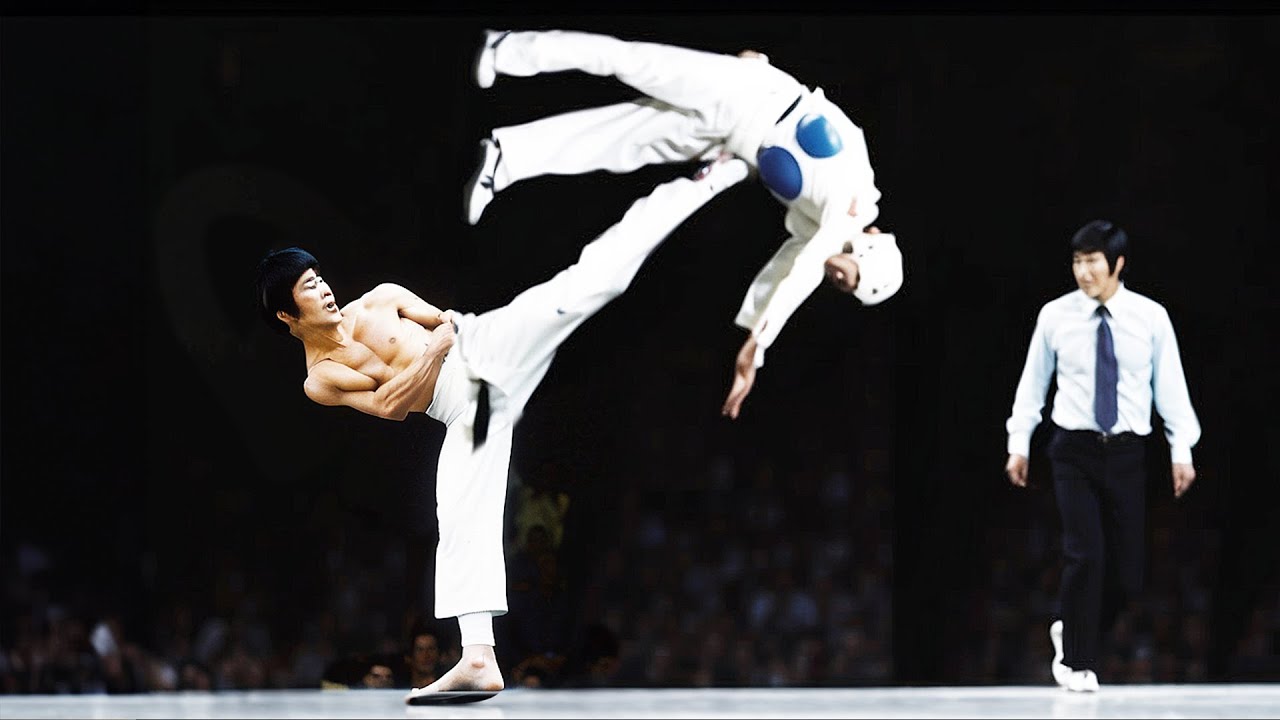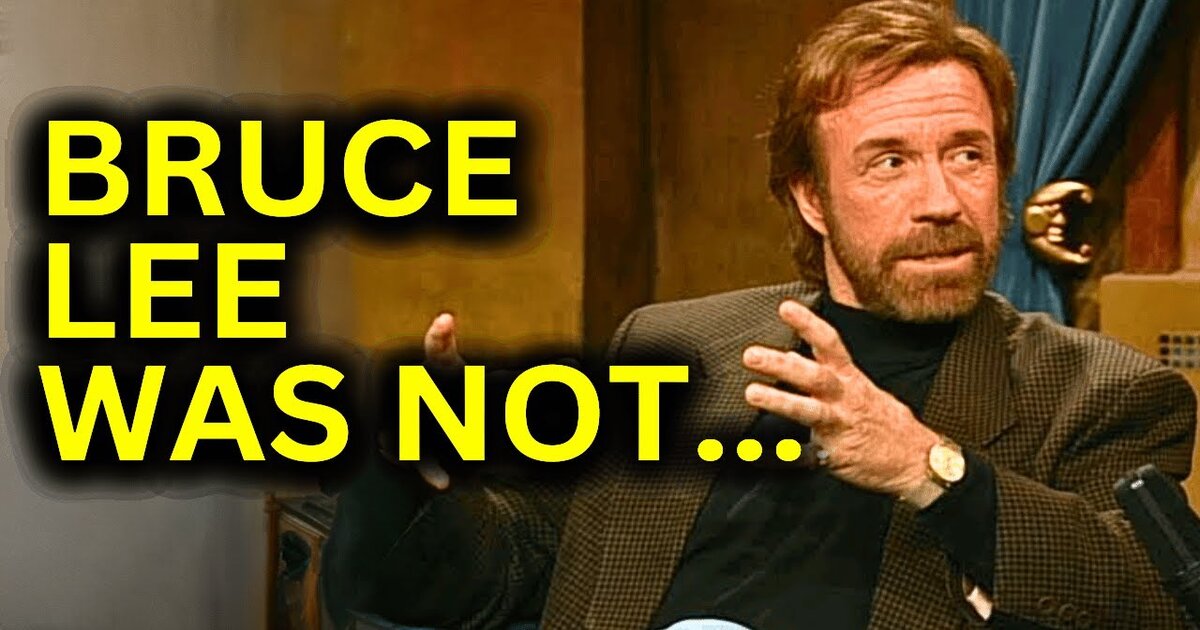The transcript below is from the video “Jackie Chan Breaks In Tears: “Bruce Lee’s Death is NOT What Your Being Told!”” by Voyager.

The Immortal Legend: Bruce Lee’s Beginnings
Bruce Lee died tragically on July 20th, 1973. He was 32 years old. The official cause of death was a fatal reaction to aspirin. Bruce Lee, the most iconic martial arts character of the last century, was known globally for his amazing physique and action techniques. Just as Bruce Lee was about to transition into a global superstar, he dropped dead under questionable conditions.

Rise to Stardom: Bruce Lee’s Path to Global Recognition
Over 50 years after his death, global action superstar Jackie Chan, his protégé, clears the air on the circumstances behind his mentor’s demise, answering major questions surrounding Bruce Lee’s death. Why didn’t anyone think of conducting an autopsy to unravel Bruce Lee’s sudden death? What role did his family play in fueling the rumors of foul play? Was Bruce Lee murdered by members of the Hong Kong underworld

The Mysterious Demise: Questioning Bruce Lee’s Death
The sudden and unexpected death of the martial arts legend Bruce Lee sent shock waves around the world. Lee, who was on the verge of global superstardom following his major Hollywood film, died from questionable circumstances. Ever since that tragic day nearly 50 years ago, speculations have swirled over the exact cause of Lee’s untimely demise.

Unraveling the Mystery: Jackie Chan’s Revelations
The name Bruce Lee automatically evoked images of power, speed, and prestige, all of which embodied how the world saw Lee. Born in San Francisco, California in 1940 to Cantonese parents, Lee was raised in Hong Kong after his family moved back to China when he was 3 months old. Bruce Lee’s father, Lee Hoy N, was a famous opera singer and film actor. Hence, Bruce Lee appeared in about 20 Chinese films as a child. The outgoing Bruce Lee was athletic and involved in Cha-cha dancing and rooftop fighting. This flair for bodily kinesthetics led him to pursue martial arts fervently under the legendary Wing Chun Master Yip Man at age 14.

The Impact of a Legend: Bruce Lee’s Cultural Legacy
After his marriage to Linda Emery in 1964, Bruce continued to teach martial arts and opened his first martial arts studio in Seattle, gaining attention for his unique teaching style. As a teenager, Lee was said to have been involved in rooftop fighting matches against rival martial arts schools in Hong Kong. Despite opponents often outweighing him, Lee reportedly won fight after fight with his lightning-fast strikes. It was said that he moved like a cobra and would end matches in seconds. Stuntman Jean Leel recalls Lee silencing an extra who confronted him on set. Lee had the overconfident challenger knocked out cold after several heavy punches.

The Torchbearer: Jackie Chan’s Journey and Tribute
Bruce Lee participated and stunned spectators in the Long Beach International Karate Championship in 1964, which opened doors for him to demonstrate his unique style on the screen. First came his role as a sidekick in the Green Hornet TV series, later attracting the attention of major Hong Kong film producers. This led to a two-film deal with Golden Harvest after giving a martial arts demonstration at the karate competition. Lee was challenged by 7th-degree black belt Vic Moore. Moore launched a powerful kick straight at Lee’s head, but it was effortlessly deflected. Lee then counterattacked with blinding speed, landing a punch just short of Moore’s face to make his point. Moore admitted later, “I knew I was totally outclassed.”

Lessons from a Master: Jackie Chan’s Reflections
“Fists of Fury” and “The Chinese Connection,” released in 1971 and 1972, launched Bruce Lee into stardom in Asia. “Way of the Dragon,” filmed in Rome, continued his ascendence. “Enter the Dragon,” co-produced by Warner Bros., was prepped to usher the genre into mainstream Western culture. This was the game-changer for Lee and martial arts globally. But just days before the release of “Enter the Dragon,” Bruce Lee died of an allergic reaction to medication. He was 32 years old.

Honoring the Legacy: Continuing Bruce Lee’s Spirit
Bruce Lee’s untimely death was and is still shrouded in mystery to this day. The official cause was cerebral edema, which was a swelling of the brain. The report stated that Lee had an adverse reaction to an analgesic medication that he had taken for a headache. This report seemed way too convenient for the ever-active Bruce Lee. Many thought leaders believed that Lee was murdered by the Hong Kong Triads, a group of powerful organized crime syndicates known for all kinds of crimes, including drug trafficking, counterfeiting, and money laundering. One has to wonder what an upstanding movie icon had to do with the members of the Asian underworld. It could be that Lee’s fame and plans to introduce Chinese martial arts to the Western mainstream upset The Syndicate. The Hong Kong Triads have a history dating back to the 18th century, which makes it a very conservative and traditional organization. It is said that Lee’s murder was a move to protect their turf.

Continuing the Legacy: Embracing Bruce Lee’s Vision
Despite the popularity of this news, there has been no clear evidence linking anyone from the Hong Kong underworld with Lee’s demise. However, Bruce Lee had collapsed in Hong Kong the year before. Doctors also blamed this incident on a reaction to medication. However, this trend of collapses in Hong Kong seems too suspicious to be normal.

The Evolution of Martial Arts: From Bruce Lee to Today
Members of Bruce Lee’s family contributed to the mystery as his wife told of his obsession with experimenting with liquids and powders months before his death. She stated that he desperately wanted to develop a nutritional supplement. This revelation stirred many questions in the minds of his fans and business associates. Could some untested substances have caused unforeseen problems? Did Lee take a mysterious powder the day he died?

Inspiring Generations: The Enduring Legacy of Bruce Lee
To make matters worse, Bruce Lee’s death was not thoroughly investigated at the time. The police did not perform an autopsy. The doctor’s medication story was sufficient for them. This was unheard of for a star of his level who died under mysterious conditions. This only further deepened the uncertainties surrounding Lee’s premature passing.

Beyond the Legend: Bruce Lee’s Lasting Impact
Coming back to America, there were whispers that Bruce Lee’s involvement in Hollywood and his meteoric rise as an Asian in 1970 made him a target. It is also possible that Lee learned a dark secret about the powers that be in Hollywood, and they wanted to keep him quiet at all costs. There is no doubt that Hollywood is a web of secrets. Much recently, there were conversations about the fact that his rigorous training regimen may have played a part in his body shutting down. Medical experts state that Lee’s excessive training could have fatally damaged his health in ways that were not fully understood at the time. Some say that these conditions combined and led to a heat stroke.

Legacy of a Legend: Jackie Chan’s Ongoing Mission
A recent analysis of Lee’s physical routine shows its extreme nature. He believed in constantly shocking the body to spur growth, explaining that the physical needed to reflect the spiritual. He developed innovative training methods utilizing simple equipment like resistance bands, weighted vests, and a self-designed exercising device that used pulleys and chains for dynamic full-body movements. His ultra-heavy leg training involved deep squats with over 300 lb on his back. This may have contributed to his recurring back troubles, and experts have advised against loading the spine with such a disproportionate weight. Lee also experimented extensively with supplements, protein powders, vitamins, and shakes made from ingredients such as pollen and chlorella. It is also said that he would consume about 30 to 40 “vitamin bombs” daily, also using stimulants. He once mentioned using ephedrine to lose weight for films. He was also an early adopter of the electric muscle stimulator to intensify workouts. His pioneering regimen clashed with the evolving sports science.

Bruce Lee’s Enduring Legacy: A Cultural Phenomenon
Without a doubt, his demise left a permanent void in cinema culture and martial arts. Fifty years after his demise, the impact of his life continues to reverberate in the culture. Before Bruce Lee, Asian actors were essentially non-existent in big-budget Hollywood films. Lee was instrumental in smashing these racial barriers and paving the way for Asian representation on the big screen with his mesmerizing performances. He caught the eyes of Hollywood executives who wanted to capitalize on his unique sensation. His training as an actor also made for a well-seasoned lead actor who could show the depth of the characters. He demonstrated a commanding screen presence on par with established stars and opened Asia to the Western world as a viable audience worth billions of dollars. As far back as 1973, Warner Bros. took the bold step to cast Lee as the lead character for “Enter the Dragon,” the film which earned $25 million at the box office only went on to spark a surge in martial arts.

The Legacy Lives On: Inspiring Future Generations
He also played a huge part in reshaping global perceptions of Asian masculinity. His physique showed confidence, strength, and mastery as opposed to the meek and diminished Asian stereotypes. Beyond his exploits in breaking boundaries, Lee redefined what action choreography looked like. His athleticism and strong grasp of martial arts philosophy resulted in a fighting sequence never seen before. His style of martial arts infused moves from different disciplines, which kept audiences in awe. He was able to convey drama through combat, embody control, and move with speed. In other words, he reimagined what heights action films could reach. Before Lee, martial arts was a practice shrouded in secrecy for many centuries. It was principally done in the shadows and was largely mysterious to outsiders. Lee’s films showed the power and discipline required to master the arts. The enrollment rate of karate, kung fu, and Taekwondo skyrocketed as a new generation of youngsters subscribed to the rigors of the arts.

The Enduring Spirit: Remembering Bruce Lee
Arguably one of Lee’s most important impacts on the culture was his emphasis on spiritual, mental, and character-building aspects of martial arts. His principles went beyond the mastery of physical techniques to a holistic approach for the public to appreciate the depth and richness of age-old martial traditions. Bruce Lee reintroduced the world to the Chinese martial arts of his childhood, including Wing Chun, Northern Shaolin, and Tai Chi. The discipline and focus these arts instill resonated with practitioners of all backgrounds. To this day, Lee is considered the most pivotal figure in spurring interest in Chinese martial arts in the West.

Legacy in Action: Jackie Chan’s Continuing Journey
The next, and probably the most lasting effect of the Bruce Lee legacy, is a 67-year-old Chinese acting legend with over 150 film credits to his name, Jackie Chan. Known for his slapstick acrobatics and fearless stunt work, Jackie Chan has entertained audiences globally for over 50 years, becoming one of the most universally beloved film stars. His journey began humbly in Hong Kong before rising to fame through perseverance and innovation. Born in Hong Kong in 1954 to parents who worked for the French Ambassador, Chan lived on the grounds of the Victoria Peak estate. He earned the name “Cannonball” for his academic struggles and mischievous behavior in school. As a child actor, Chan appeared in a few movies as an extra. He would later enroll at the China Drama Academy to study martial arts, acrobatics, singing, and acting.

A Lasting Tribute: Jackie Chan’s Personal Reflections
He appeared as a stuntman in several films for years before finally receiving his first lead role in the 1973 film “Little Tiger of Canton.” His breakout performances would come in 1978’s “Snake in the Eagle’s Shadow” and “Drunken Master.” This performance combined action and comedy and propelled Chan to global stardom. Jackie Chan wanted to distinguish his style from that of his legendary predecessor, Bruce Lee. While Lee was stern and gritty, Chan crafted an everyman persona centered on humor and elaborate, risky stunts. Some of Chan’s signature moves incorporated parkour sequences and the use of random props as improvised weapons.

Continuing the Journey: Jackie Chan’s Ongoing Legacy
Chan finally broke through in Hollywood with 1995’s “Rumble in the Bronx,” which grossed $32 million in the US alone. Its success led to Chan being cast alongside Chris Tucker in 1998’s “Rush Hour,” a major hit that established Chan as an international celebrity able to transition smoothly between Asian and American film markets. Some of Jackie Chan’s most beloved works include the “Police Story” series, “Mr. Nice Guy,” “Who Am I?” and “Shanghai Noon.” He performed many stunts himself, leading to frequent injuries. While this approach earned Chan respect, he has been criticized for scenes perceived as overly dangerous.

Legacy Lives On: The Impact of Bruce Lee and Jackie Chan
As a child, Chan idolized Bruce Lee. He first met Lee as a stuntman on the set of “Fist of Fury” in 1972, later working with him again on “Enter the Dragon.” Chan was 17 years old then, but that fateful encounter started a friendship that profoundly impacted him. Chan first saw Lee on screen as a child in the 1966 film “The Green Hornet,” completely mesmerized by Lee’s dramatic presence and lightning-fast kicks.

The Enduring Spirit of Bruce Lee
On the set of “Fist of Fury,” Chan admitted that his heart was pounding with excitement as he could not wait to see his childhood hero. Lee came in calm and confident, and Chan described him as perfection. One day, Chan was practicing alone on set, working on his kicks. Out of nowhere, Lee walked over and introduced himself. Chan could barely form words, stammering that it was an honor to meet him. Lee smiled and started giving Chan pointers on his technique, showing him how to smoothly transition from different kicks into other moves. Lee told Chan that he had good potential and could become a star one day with hard work. Chan took those words of encouragement to heart.

Epilogue: Bruce Lee’s Eternal Influence
Lee taught Chan important lessons about perseverance and humility that guided Chan throughout his eventual rise to fame. When Jackie Chan heard the shocking news of Bruce Lee’s demise, he was devastated. This further fueled his motivation to break into the industry and honor Lee’s legacy. Chan knew he had been gifted wisdom directly from the master himself and promised to live up to those lessons.

Afterword: The Everlasting Legacy of Bruce Lee and Jackie Chan
Recalling his memories of Lee, Chan described him as strong, confident, and in perfect health. Chan said, “Bruce was never sick; he would never even catch a cold.” This has fueled conspiracy theories which argue that foul play was involved in Lee’s death, though no evidence supports this. In a recent interview, Jackie Chan gave his thoughts on the persistent rumors about the loss of his childhood hero. Tears welled up in Chan’s eyes as he discussed the pain of losing his mentor. “People are still talking about Bruce’s death. They’re still asking me what happened,” Chan said, voice trembling with emotion.

Tribute: Continuing the Legacy
Jackie Chan addressed the rumors head-on, stating, “The truth is, I don’t know what happened.” He explained that while Lee’s death was devastating, he chooses to focus on the positive impact Lee had on his life and the lives of millions worldwide. “Bruce Lee changed the world,” Chan said. “He changed the way people think about martial arts. He inspired me and countless others to follow our dreams. That’s what I choose to remember.”
As Jackie Chan wiped away tears, he emphasized the importance of honoring Bruce Lee’s legacy by continuing to push boundaries and inspire future generations. “Bruce may be gone, but his spirit lives on in all of us,” Chan said. “We owe it to him to keep fighting, keep dreaming, and keep believing in ourselves. That’s the best way to honor his memory.”
And with those heartfelt words, Jackie Chan paid tribute to his mentor, his friend, and the man who forever changed the world of martial arts. Bruce Lee’s legacy will continue to inspire generations to come, reminding us all to live with passion, purpose, and perseverance.

